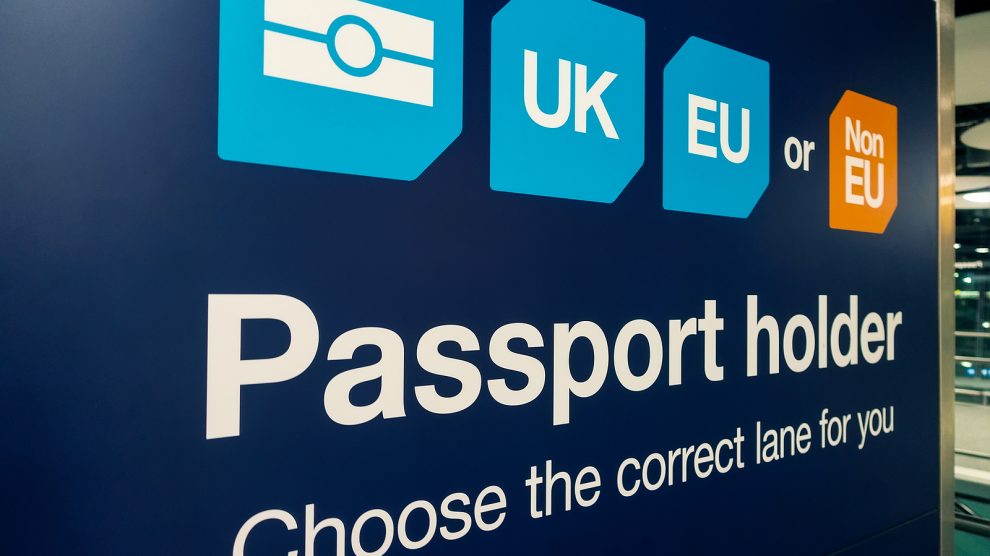It will now be far easier for the UK to deport Albanians who have no right to be in the UK.
UK Home Secretary Priti Patel this week signed a new agreement to remove Albanian nationals who have no right to be in the UK, as part of a two-day visit to the Albanian capital Tirana.
- Albania’s future depends on giving a voice to those who have lost hope
- EU hints Albania can go its own way, decoupling from North Macedonia
- UK and Albania agree trade deal
The signing comes days after the Patels’s plans to overhaul the UK’s immigration system were laid before parliament in the Nationality and Borders Bill, which will make her New Plan for Immigration law.
The new agreement, signed with Albanian Interior Minister Bledar Çuçi, will strengthen existing arrangements the UK has to remove Albanian nationals who have no right to be in the UK.
This includes failed asylum seekers, foreign national offenders (FNOs), and individuals who have overstayed their visas.
The Home Office says that Albanian nationals make up the largest number of foreign national offenders in UK prisons, totalling 16 per cent of the FNO population.
Patel has accelerated the removal of foreign criminals following the easing of coronavirus travel restrictions, and since April the UK government has removed 254 Albanian criminals from the UK as well as 85 other Albanian nationals with no right to be in the country.
After signing the agreement, Patel said that she was determined to “fix” the UK’s immigration system, clamp down on illegal entry, and remove those with no right to be in UK as swiftly as possible.
“Our New Plan for Immigration, coupled with this new agreement, will speed up the removal of Albanian nationals who have committed crimes in the UK and overstayed their welcome,” she said.
“I make no apology for removing dangerous foreign criminals to protect the British people and, so far this year, more than 1,000 foreign criminals have been deported, with more being removed every single week.”
The new agreement on removals to Albania will support the legislative changes Patel is making as part of the Nationality and Borders Bill.
The bill will expand the existing Early Removal Scheme, making it easier to remove as many foreign criminals from the UK as early as possible.
Whilst in Albania, Patel also met Prime Minister Edi Rama where she welcomed the continued cooperation between the UK and Albania in tackling serious organised crime in the region. They also reaffirmed their shared commitment to cracking down on Western Balkans-based organised crime groups involved in drugs trafficking, illicit finance, and organised immigration crime to the UK.
Trade deal
In February, the UK and Albania signed a new partnership, trade and cooperation agreement that sets out two countries’ ambitions for a future relationship including the strengthening of political, economic, security and cultural ties.
The preferential trading terms the agreement secured will enable British business to trade with Albania as they did before January 1, 2021. Until then, trade between the two countries had been covered by the European Union’s agreement with Albania.
Total trade between the UK and Albania was worth a modest 158 million UK pounds in 2019: primarily services.
The UK has so far struck post-Brexit trade deals 66 countries (plus the EU).
Of these, seven are emerging Europe countries: Albania, Georgia, Kosovo, Moldova, North Macedonia, Serbia, Ukraine.
The UK is currently negotiating deals with two other countries in the region: Bosnia and Herzegovina and Montenegro.
Unlike many news and information platforms, Emerging Europe is free to read, and always will be. There is no paywall here. We are independent, not affiliated with nor representing any political party or business organisation. We want the very best for emerging Europe, nothing more, nothing less. Your support will help us continue to spread the word about this amazing region.
You can contribute here. Thank you.








Add Comment